Apps Zone

Immersive Urban Combat: The Dynamics of City Warfare
The experience of city warfare in RP Grand offers an unprecedented simulation of urban combat that challenges players’ tactical acumen and adaptability in dense, complex environments. Unlike traditional battlefield scenarios where open terrain allows straightforward strategic deployment, urban warfare introduces an intricate maze composed of narrow alleyways, towering skyscrapers, underground tunnels, and bustling marketplaces, each shaping combat engagement in unique ways. Players must leverage advanced spatial awareness to navigate this dynamic landscape effectively. For example, line of sight is frequently obstructed by architectural structures, requiring the creative use of verticality and cover to ambush opponents or avoid detection. Tactical squads can exploit rooftops for sniper vantage points, creating zones of denial or conducting urban reconnaissance. At the same time, tight street corners and confined interiors promote close-quarters combat where rapid reflexes and precise weapon handling dominate. The gameplay mechanics meticulously incorporate these elements by integrating destructible environments that react to explosions or gunfire, thus altering the battlefield in real-time; a shattered wall opening new ingress points or collapsing structures blocking previously accessible routes adds layers of unpredictability and strategic depth. Communication and coordination among team members become crucial since misjudging enemy positions or failing to secure choke points can result in rapid loss of territory. Furthermore, RP Grand’s simulation accounts for civilian presence and environmental factors such as weather and time of day, which influence visibility, movement speed, and even non-combatant behavior, complicating decision-making processes further. Players are encouraged to adapt their gear and tactics to the evolving urban milieu, for instance, selecting suppressors and submachine guns for stealth operations in close quarters or deploying drones for aerial reconnaissance to scout ahead and anticipate enemy maneuvers. The city's living world also hums with activities beyond combat; factions vie for influence over districts, resource control points emerge for contested ownership, and law enforcement units dynamically respond to escalating violence, making every encounter layered with strategic consequence and narrative weight. Therefore, urban combat in RP Grand transcends mere shooting mechanics, demanding comprehensive battlefield management, strategic foresight, and the ability to think creatively within a nuanced, realistic cityscape that mirrors complex real-world urban conflict scenarios.
Strategic Planning and Resource Management in a Living City
Strategy within RP Grand extends far beyond battlefield tactics to encompass a broad spectrum of operational, economic, and sociopolitical dimensions, reflecting the multifaceted challenges of controlling a modern city. Rising to power requires prudence in planning resource allocation, managing financial assets, forging alliances, and anticipating rival factions' moves. Players operate within an economy that mirrors realistic market principles, wherein investments in companies or real estate generate revenue streams crucial for sustaining military expenditures, upgrading equipment, and funding expansionist ambitions. Sound economic planning becomes the bedrock upon which military strength is built. For instance, purchasing properties in high-traffic districts can yield steady income and confer critical strategic advantages, such as vantage points or logistical hubs. However, managing these assets demands constant vigilance since economic volatility and in-game events may affect property values or resource availability. Strategic resource management includes balancing offensive and defensive capabilities, maintaining supply lines, and deciding when to conserve or expend scarce materials like ammunition, fuel, or medical kits. The deployment of troops and equipment must be synchronized with intelligence gathering gathered from espionage missions or scout parties aimed at acquiring knowledge about enemy positions or city resource nodes. The strategic layer also manifests in player interaction dynamics, where diplomacy and negotiation can forge powerful coalitions or precipitate sudden betrayals. Trust becomes a valuable currency since temporary alliances may open routes through contested territory or pool resources for joint operations, while rivalries trigger arms races and escalation of localized skirmishes into larger conflicts. The layered geopolitical landscape within the city forces players to assess not only their immediate tactical surroundings but also the broader societal impacts of their actions, such as public opinion, law enforcement responses, and media portrayal. Those who master these interwoven threads of economic management, social influence, and battlefield leadership can systematically dismantle opponents’ power bases, expand their territory, and cement their dominance over the metropolis. The interplay of resource scarcity, opportunistic alliances, and adaptive strategies ensures that every decision shapes long-term narratives and contributes to a richly textured sandbox of strategic depth and emergent gameplay complexity unparalleled in open-world games.
The Role of Technology and Customization in Tactical Superiority
Technological advancement and meticulous character customization constitute vital components in achieving tactical superiority within the complex urban theater of RP Grand. The game’s intricate systems allow players to tailor their avatars, vehicles, and equipment, creating a unique blend of capabilities that match their strategic priorities and personal playstyles. At the character level, customization options go beyond mere cosmetic aesthetics, embedding functional attributes such as stealth proficiency, weapon handling, stamina, and negotiation skills, all of which influence in-game interactions and combat outcomes. For example, a character specialized in stealth may excel in infiltration missions, using silenced weapons and parkour abilities to bypass heavily guarded areas, whereas heavily armored characters are better suited for frontline engagements or defensive strongholds. Vehicle customization plays an equally pivotal role; from tuning engine performance to reinforce armor plating or installing advanced communication systems, players can design transport solutions optimized for speed, resilience, or tactical versatility. Building a fleet of bespoke rides can facilitate rapid response scenarios, daring chases, or mobile command posts within sprawling urban environments, thus tipping the balance in critical engagements. The integration of cutting-edge in-game tech extends to surveillance drones, hacking tools, and modular weapon loadouts that empower players with situational advantages. Drones equipped with infrared or night vision allow scouting under low-visibility conditions, while hacking devices open new operational avenues such as disabling security systems, causing power outages, or intercepting enemy communications, thereby adding a cyber dimension to conventional warfare. Furthermore, the game's upgrade systems encourage long-term commitment and strategic planning; incremental enhancements to gear or information networks translate into compound benefits in battle or economic enterprises. The portfolio of available technologies and customization choices are reflective of real-world military and criminal tech trends, introducing authenticity and immersion that sharpen the tactical experience. Mastery of these tools requires both theoretical knowledge—understanding the mechanics and synergies of upgrades—and practical application—adapting innovations fluidly to unpredictable urban combat scenarios. Ultimately, leveraging technology and fine-tuned customization empowers players to transition from reactive fighters to proactive strategists, capable of orchestrating complex operations that make decisive impacts on their standing within the city’s volatile power matrix.
Multiplayer Dynamics and Collaborative Warfare Strategies
RP Grand's multiplayer environment transforms the traditional single-player experience into a sprawling social ecosystem where collaborative warfare and player diplomacy become central to success. The game fosters intricate interpersonal dynamics that elevate strategic warfare to a collective endeavor, necessitating effective communication, role assignment, and synchronized coordination among allies. Whether forming tight-knit squads for tactical assaults, joining large-scale factions that contest territorial dominion, or engaging in hostile rivalries, players navigate a living and breathing network of alliances and antagonisms that constantly evolve. Communication tools embedded within the game enable real-time voice chats, tactical map annotations, and encrypted messages, allowing teams to strategize joint operations, execute complex urban maneuvers, and adapt quickly to emergent battlefield developments. For instance, coordinated ambushes or simultaneous multi-directional attacks require precise timing, with designated roles including snipers, assault units, medics, and engineers providing battlefield support, reflecting the intricacies of modern combined arms warfare. Diplomacy extends beyond mere battlefield cooperation; it includes negotiating ceasefires, resource sharing agreements, and intelligence exchanges, all of which are crucial in a contested cityscape where trust is a strategic asset yet fragile and often temporary. Multiplayer interactions generate emergent gameplay that mirrors real-world social and political phenomena such as shifting alliances, coups, and insurgencies that reshape the urban power balance over time. The game's design integrates competitive leaderboards and persistent world consequences, incentivizing players to invest in their faction’s prominence while cultivating personal reputations through valorous deeds or cunning espionage. Strategies evolve not only based on raw combat effectiveness but also on psychological components like morale, deception, and negotiation prowess. Additionally, multiplayer scenarios extend to specialized events and challenge arenas that provide stimulating environments for small-scale skirmishes or massive confrontations, testing both individual skill and teamwork under pressure. This multiplayer complexity synthesizes a deep strategic layer where collective intelligence, leadership, and adaptive collaboration determine victors amidst the chaos and unpredictability of city warfare.
Economic Empowerment and Sociopolitical Influence Through Gameplay
Beyond martial prowess and tactical mastery, RP Grand invests significant design focus on the integration of economic empowerment and sociopolitical influence as critical elements shaping the player’s journey through the living city. The game replicates the delicate balance of power that arises from financial control and civic engagement, illustrating how economic resources can translate into tangible influence over urban governance and societal trends. Players may embark on entrepreneurial ventures, opening businesses that serve as both profit generators and strategic footholds within economically vital districts. Real estate investments provide long-term wealth accumulation, with metropolitan neighborhoods displaying distinct demographic and socioeconomic profiles which impact the cost of operations, clientele, and susceptibility to crime or law enforcement interference. Navigating these complexities demands analytical skills and market awareness akin to real-world economic management, as players must interpret fluctuating supply and demand, respond to competitor encroachments, and capitalize on cyclical opportunities. Political influence is achieved through a combination of public relations, alliance-building, and tactical use of covert activities. Players may engage with local NPC factions representing varied interests—from government officials to underground syndicates—whose cooperation or opposition can shift the city’s power dynamics. By leveraging resources to fund community projects or sway media narratives, players construct layered strategies to legitimize their operations and weaken adversarial coalitions. This influence further translates into gameplay advantages, including reduced law enforcement scrutiny, access to exclusive missions, or priority in contested resource claims. The sociopolitical ecosystem is dynamic and responsive; events like protests, crime waves, or election cycles simulate realistic instability and opportunity, compelling players to adapt policies and strategies continuously. Through understanding the intricacies of urban economics and political leverage, players experience a nuanced gameplay dimension that accentuates the simulation's realism and depth. By harmonizing economic success with social influence, the game challenges players to orchestrate a multifaceted ascent that transcends mere force, showcasing how control over wealth and people, combined with strategic acumen, forges lasting legacies within the tumultuous urban theatre.
For those eager to immerse themselves fully in this expansive and intricate world, Download for Android and start crafting your own destiny, leading your army to victory and making history in RP Grand.
Share Your Opinion
Your Email Will Not Be Published.
All Rights Reserved © Apps Zone 2025
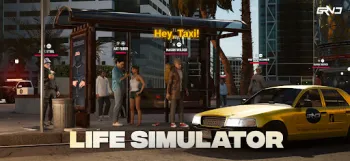
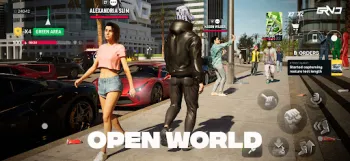
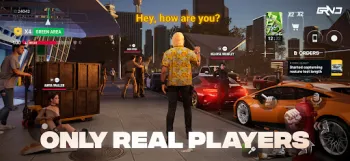
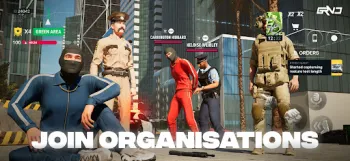
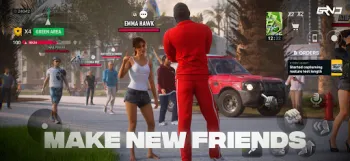
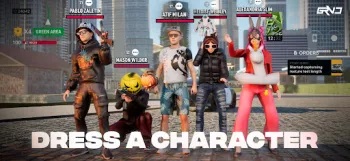
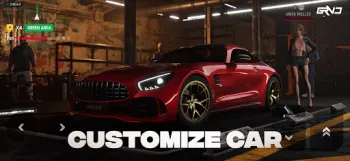

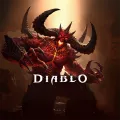

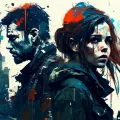



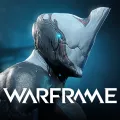
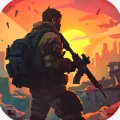
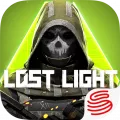



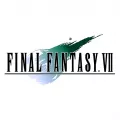






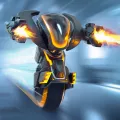




Vella Duraichi
open world, I am not sure to graphics design with your the best graphics templates. but I like the idea that design makes a game great.I give it a ...
Abeba Bachore
you know l am saying it is 5 stars 🌟 first. the graphics 👌 😍 sec the game play nice but the problem is the downloading it takes 4 mins to 10 min...
Ronak Kumar
very very very good game!!!, I have loved this game but pls add some transport systems like airport, metro, taxi, and more. u can develop this game...
Ibrahim Umar
Absolutely amazing top notch I recommend this game for anyone who loves stimulation game it's awesome lastly please can you add radio in vehicles a...
Khalid Oubentay
I really love this game, the graphics, the mechanics and the content.. are really cool. the dev team awesome! only two issues with this game; 1 the...